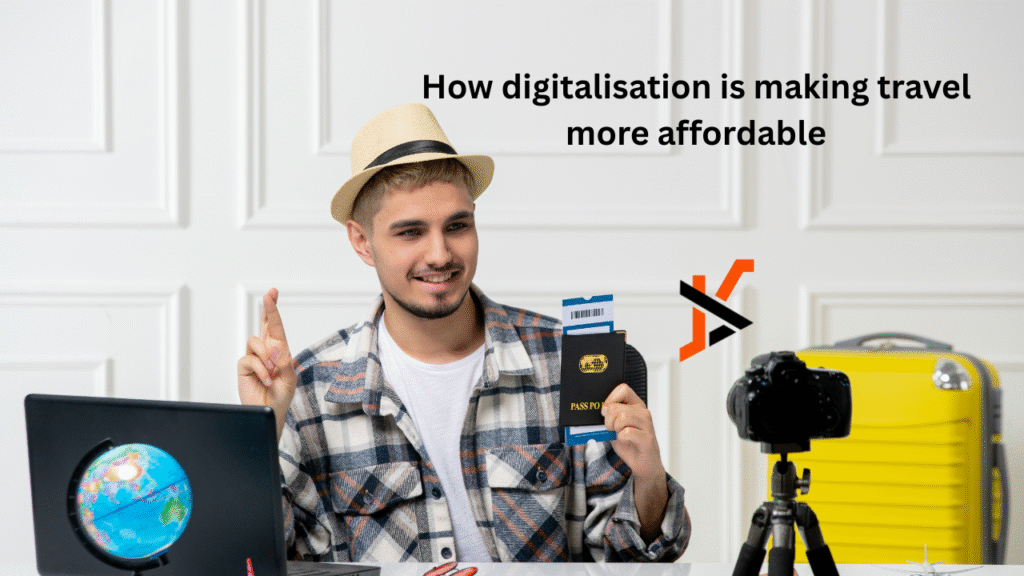Digitalisation has revolutionised the travel industry, changing it from an expensive luxury reserved for the privileged few into an accessible possibility for millions. Technology-driven innovations across booking, pricing, and service delivery have lowered costs whilst expanding choice, fundamentally democratising global travel.
Online Booking Platforms
Digital platforms have eliminated traditional travel agents’ monopoly on bookings, creating direct connections between travellers and service providers whilst introducing fierce competition that benefits consumers. Sites like Expedia, Booking.com, and Skyscanner aggregate millions of options across flights, accommodations, and activities, presenting them through intuitive interfaces that allow instant comparison and booking. According to Statista, the global online travel booking market reached approximately $640 billion in 2024, reflecting widespread consumer adoption. These platforms negotiate bulk rates with providers, passing savings to customers whilst offering package deals combining flights, hotels, and transfers at discounts unavailable when booking separately. Real-time availability means no more phone calls to check room availability or flight seats; everything updates instantly, streamlining what once required hours into minutes.
Price Comparison Tools
Price comparison functionality is one of digitalisation’s most powerful consumer benefits. Tools like Google Flights, Skyscanner, and Kayak scan hundreds of airlines and booking sites simultaneously, identifying the cheapest options across flexible dates and routes. Fare alerts notify users when prices drop to target levels, whilst predictive pricing algorithms suggest whether to book now or wait for anticipated decreases.
Mobile Apps for Instant Deals
Mobile apps including Hopper and HotelTonight specialise in last-minute offers, connecting travellers with unsold inventory that hotels and airlines discount heavily instead of leaving empty. These digital tools shift power dynamics, previously, providers held information advantages allowing premium pricing, but now consumers access the same data, forcing competitive pricing. For destinations like holidays in Dubai where numerous operators compete, comparison tools guarantee that travellers secure optimal deals rather than overpaying through uninformed choices.
Budget Airlines and Low-Cost Travel
Digitalisation enabled the budget airline revolution by reducing operational costs that traditional carriers couldn’t match. Online-only booking eliminates ticket offices and call centers, automated check-in reduces staffing needs, and dynamic pricing algorithms maximise revenue per flight whilst filling seats cheaply when demand lags. According to the studies, low-cost carriers now represent over 50% of UK passenger traffic, showing how profoundly they’ve reshaped travel accessibility. Airlines like Ryanair, easyJet, and Wizz Air connect secondary airports with direct routes traditional airlines ignored, opening destinations that previously required expensive connecting flights.
Sharing Economy Services
Peer-to-peer platforms like Airbnb, Vrbo, and Uber have introduced competition to accommodation and transport sectors that operated as quasi-monopolies. Private homeowners offering spare rooms or entire properties undercut hotel rates whilst often providing more space and local character. Ride-sharing apps broke taxi monopolies, introducing transparent pricing, driver ratings, and competitive rates. These platforms leverage existing assets, such as spare bedrooms, and personal vehicles, creating supply without the capital investment traditional providers required, allowing lower pricing whilst maintaining quality through rating systems that enforce accountability.
Digitalisation continues reshaping travel economics, with each technological advancement introducing efficiencies that translate into consumer savings. From booking to transportation to accommodation, technology has made exploring the world more affordable and accessible than any previous generation could have imagined.

